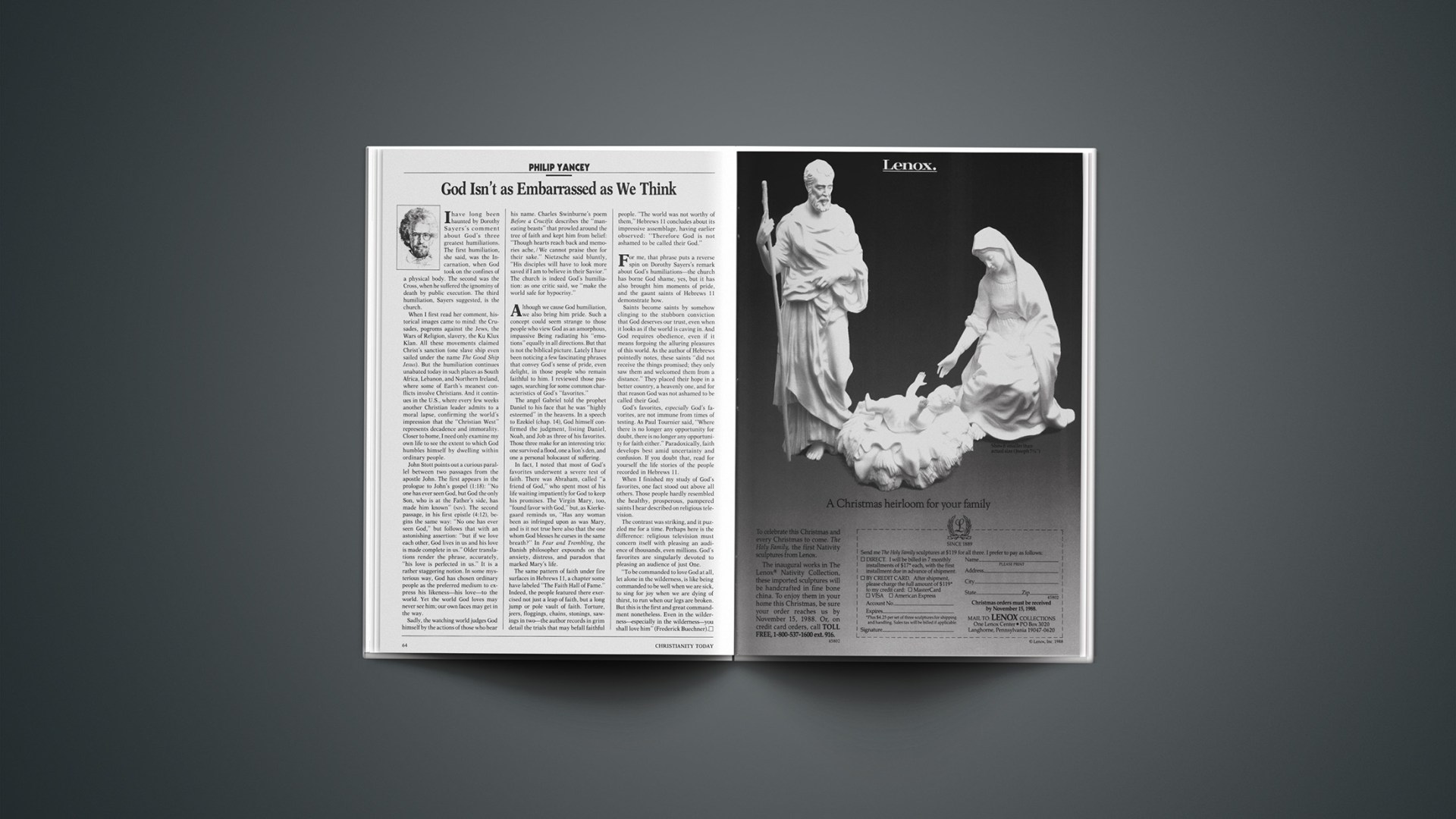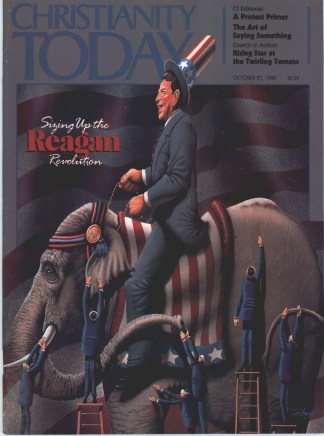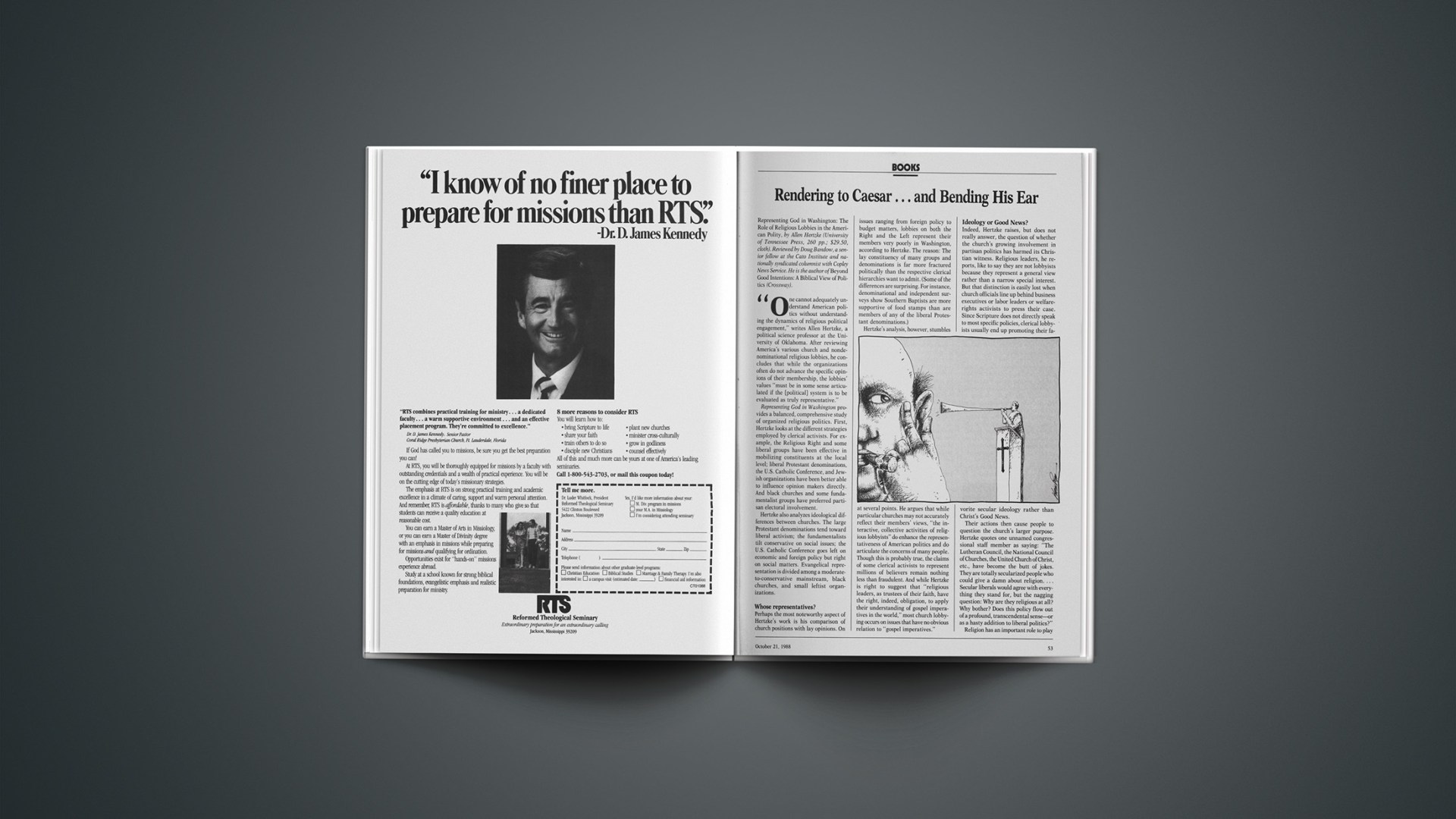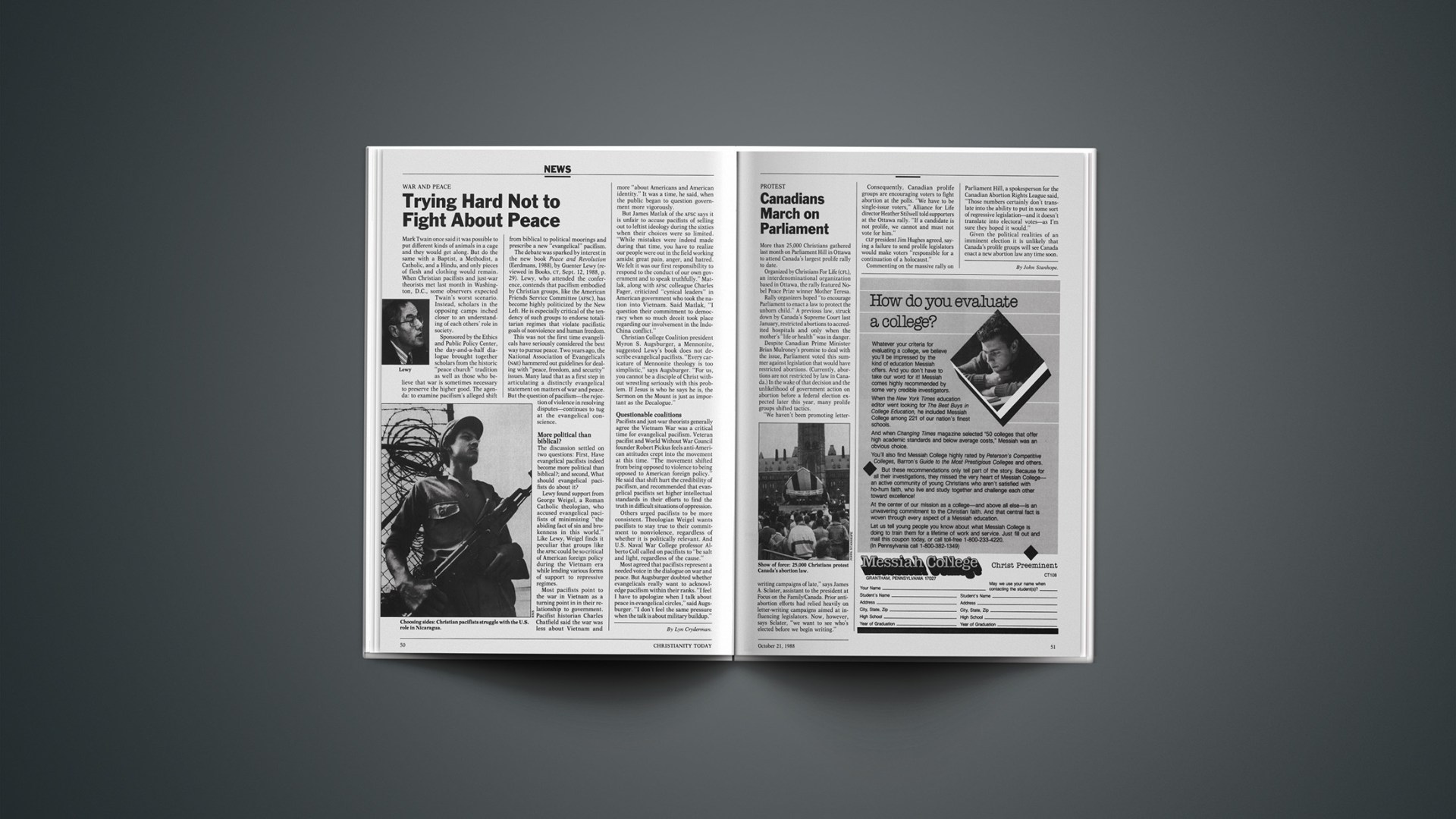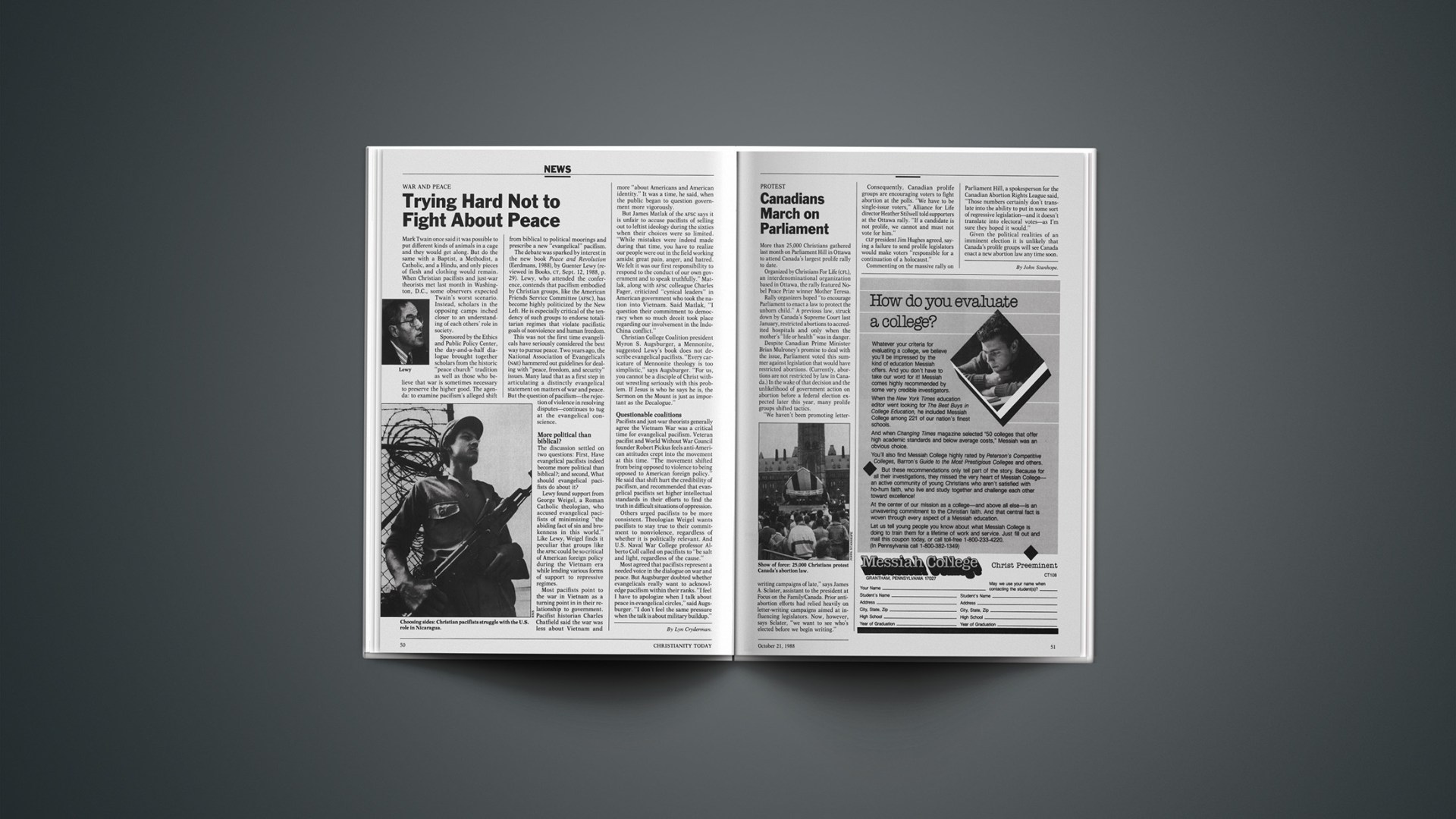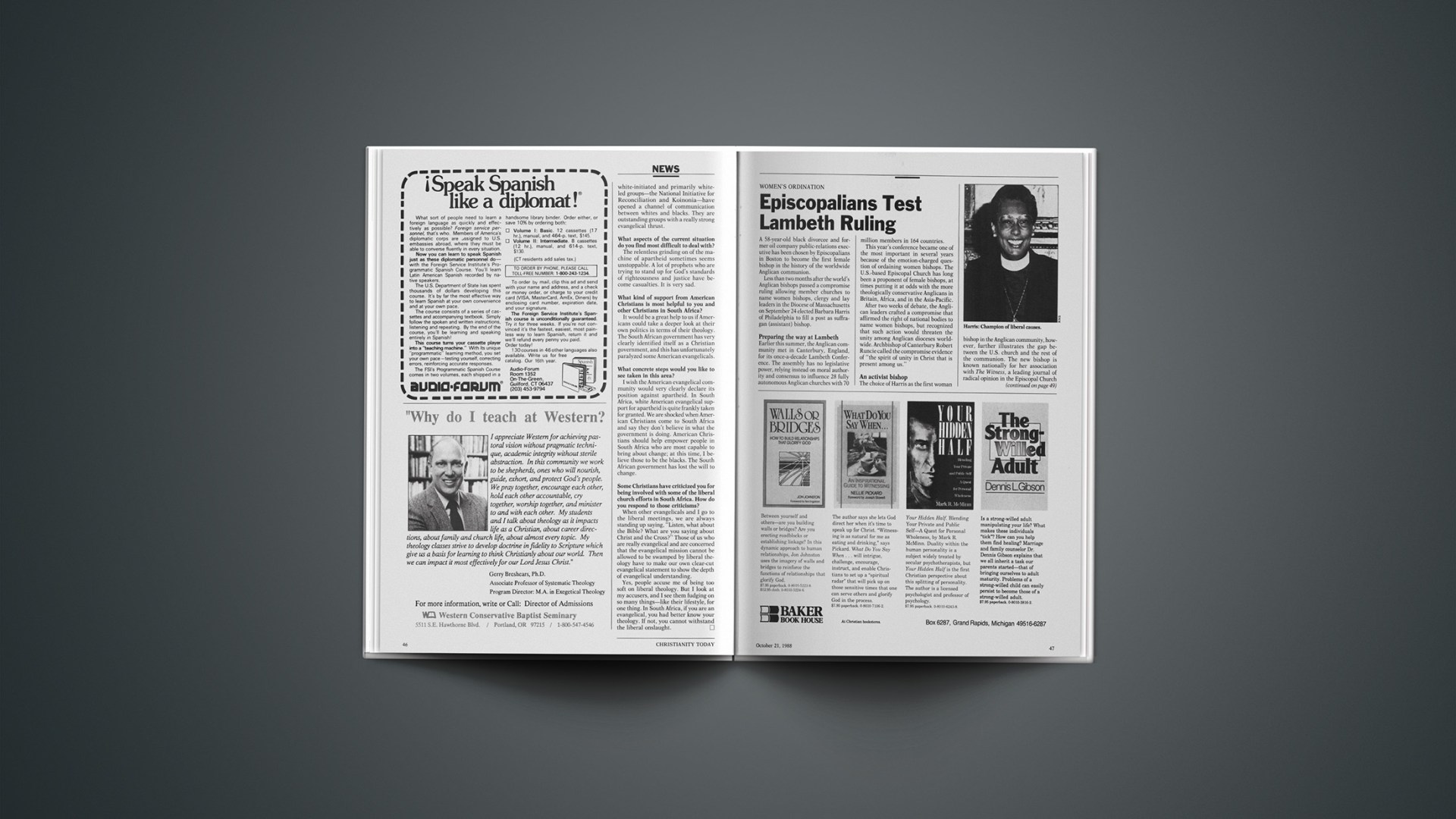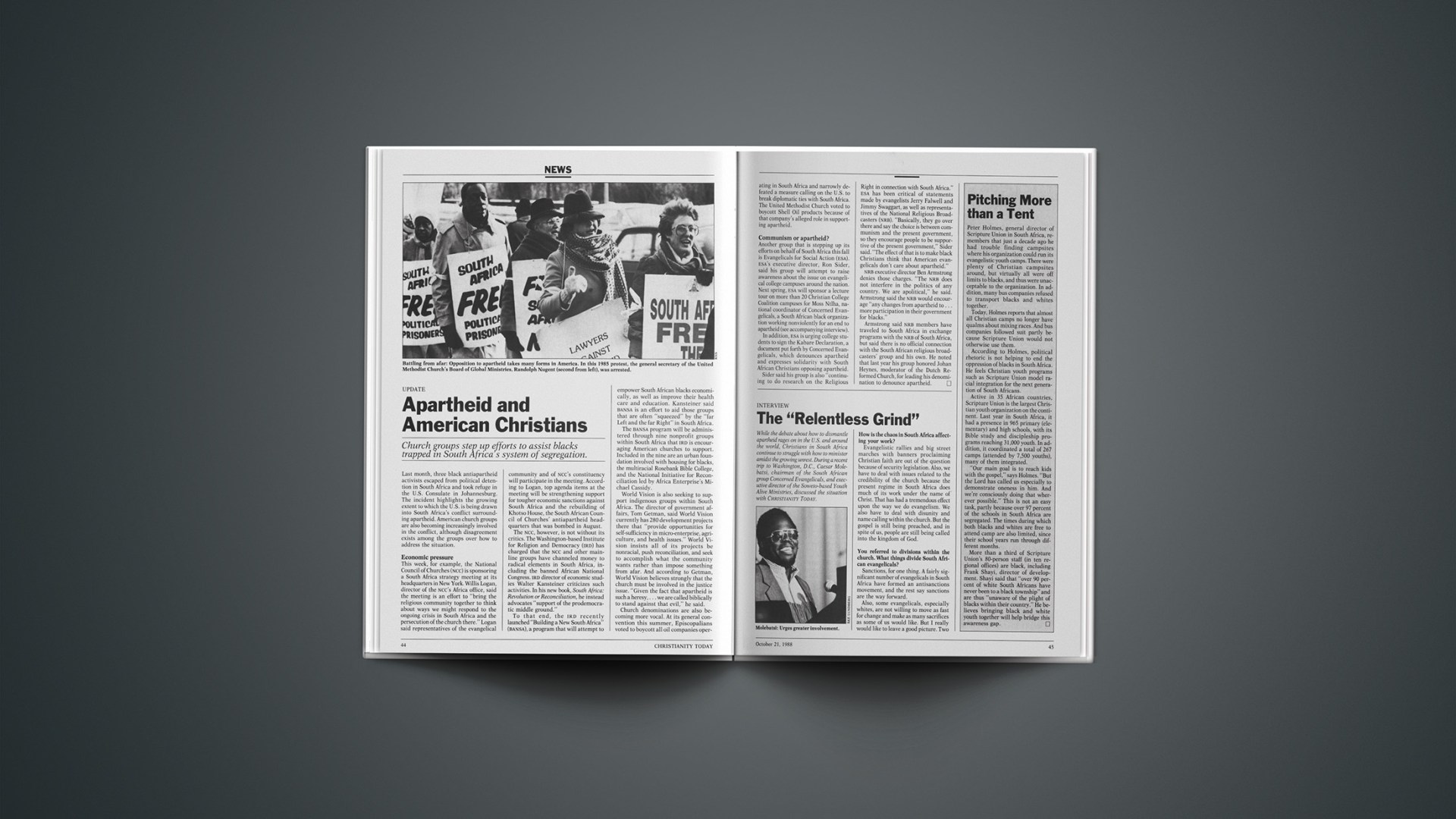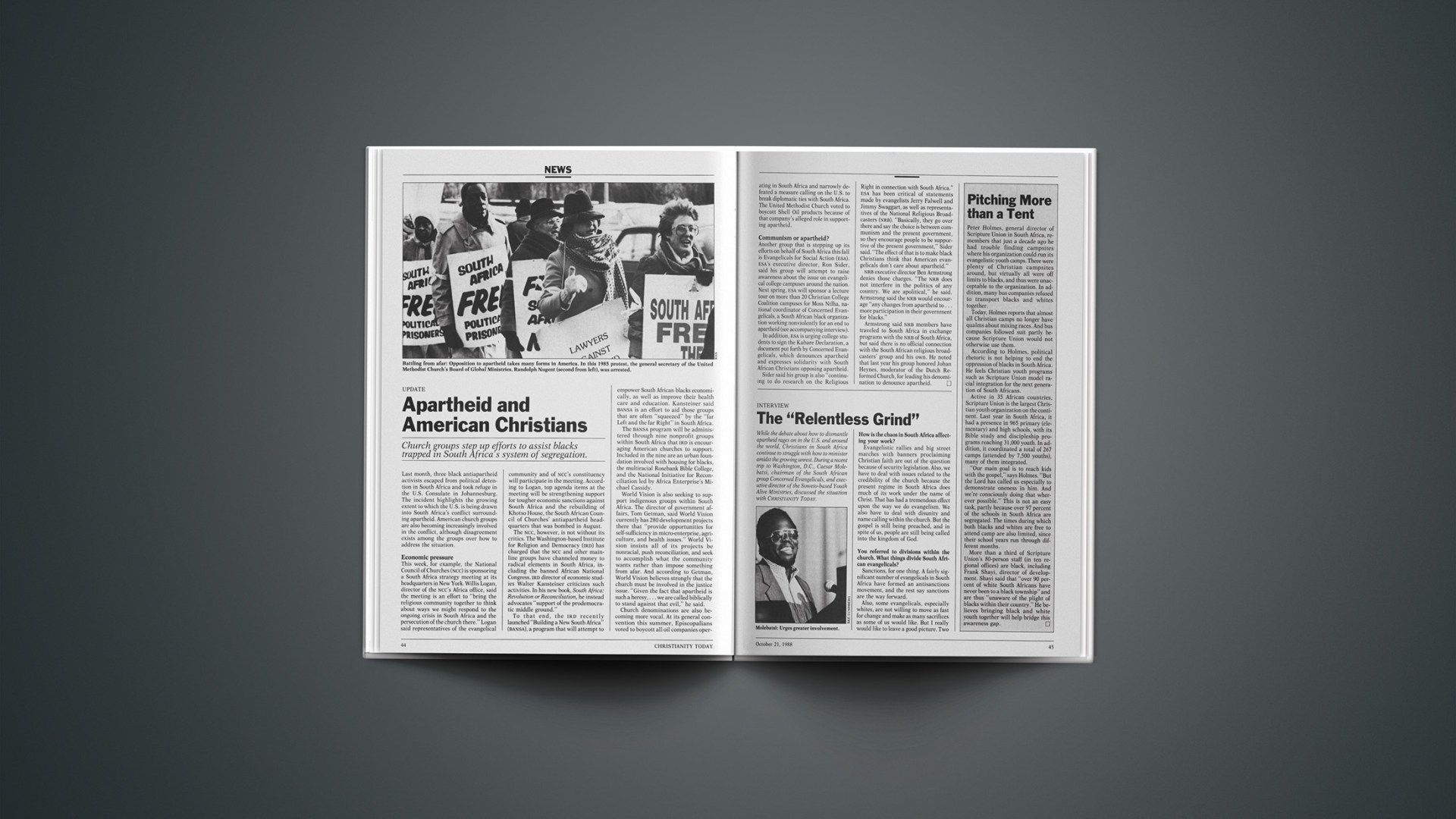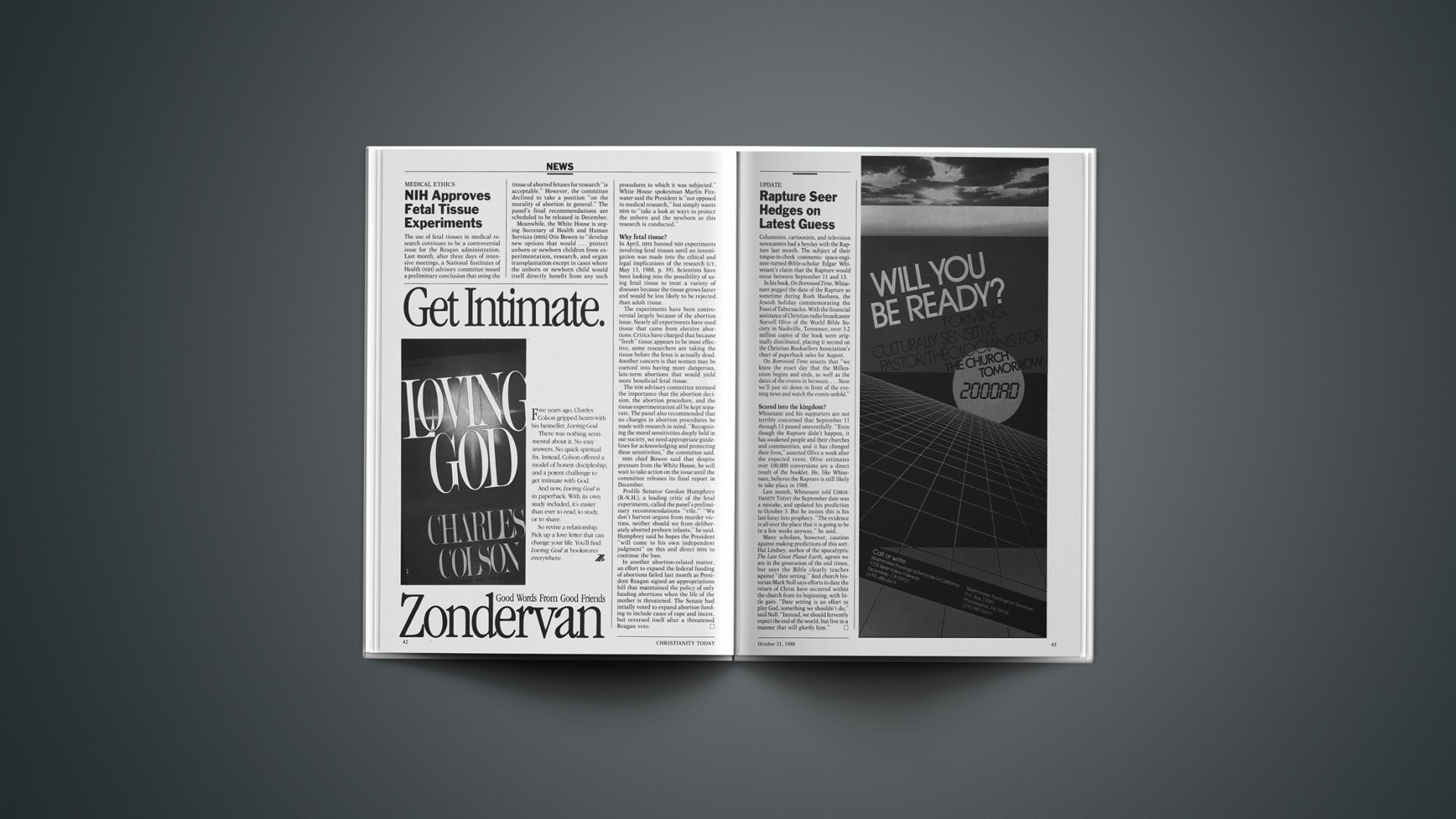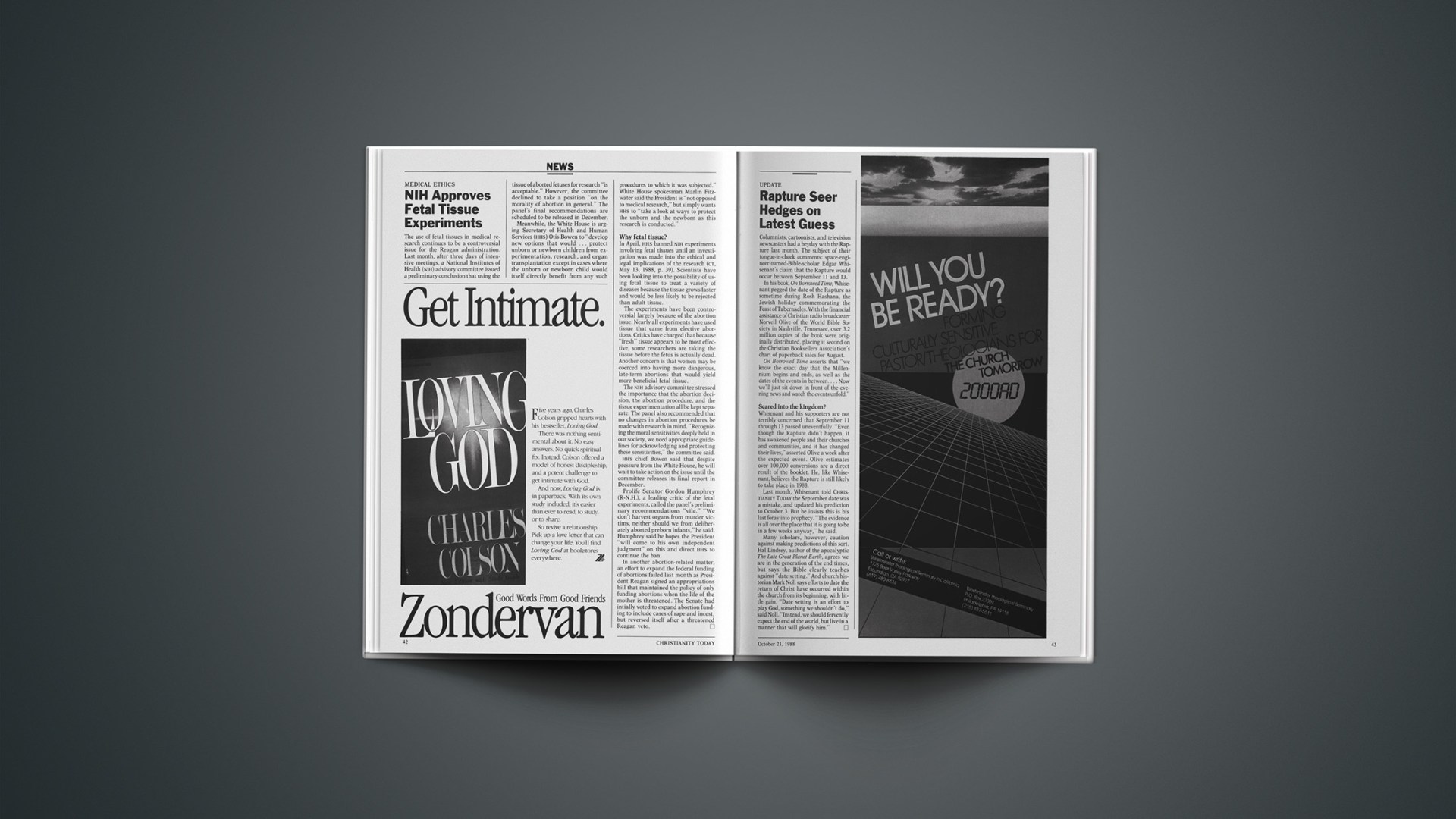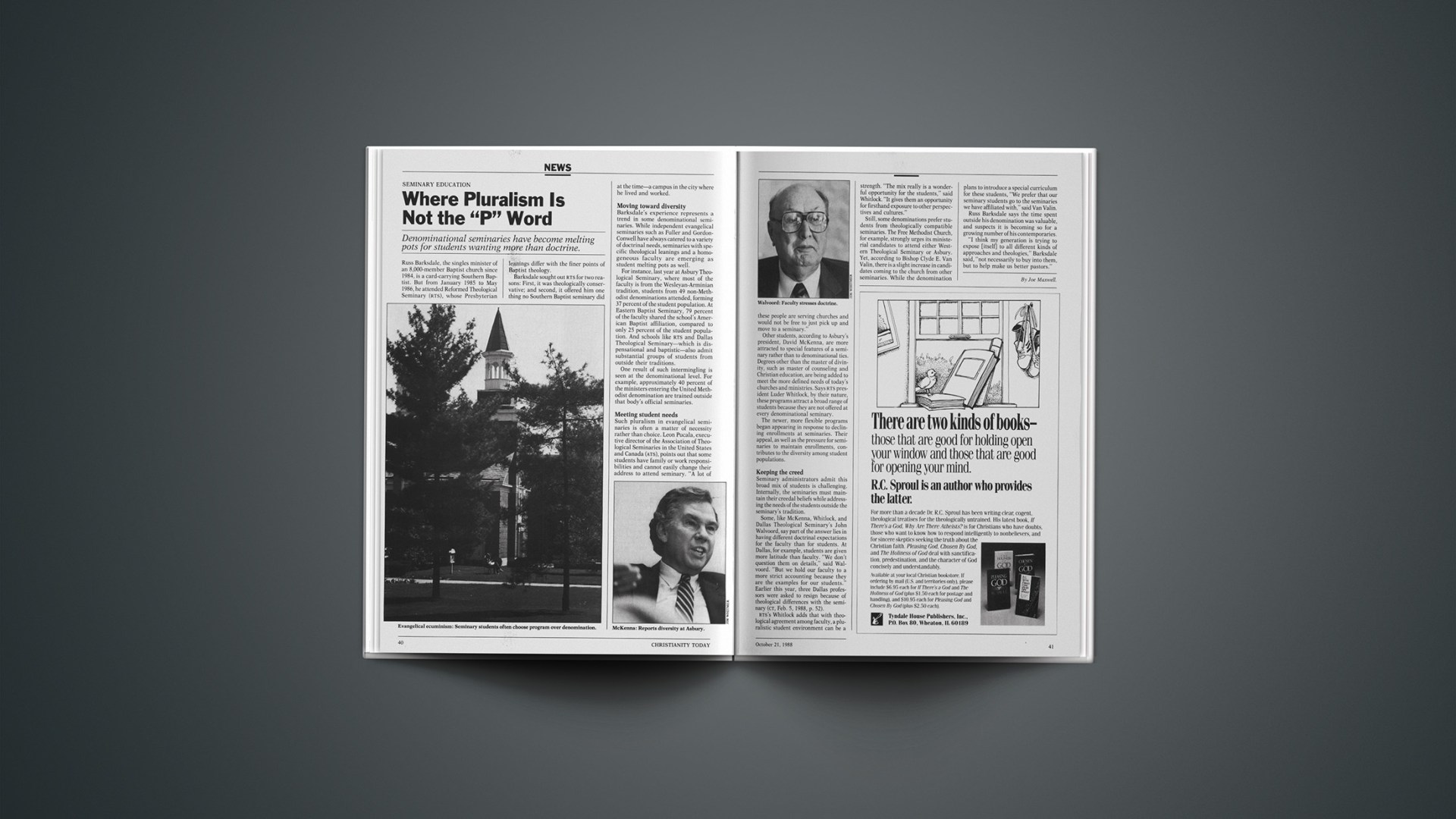I have long been haunted by Dorothy Sayers’s comment about God’s three greatest humiliations. The first humiliation, she said, was the Incarnation, when God took on the confines of a physical body. The second was the Cross, when he suffered the ignominy of death by public execution. The third humiliation, Sayers suggested, is the church.
When I first read her comment, historical images came to mind: the Crusades, pogroms against the Jews, the Wars of Religion, slavery, the Ku Klux Klan. All these movements claimed Christ’s sanction (one slave ship even sailed under the name The Good Ship Jesus). But the humiliation continues unabated today in such places as South Africa, Lebanon, and Northern Ireland, where some of Earth’s meanest conflicts involve Christians. And it continues in the U.S., where every few weeks another Christian leader admits to a moral lapse, confirming the world’s impression that the “Christian West” represents decadence and immorality. Closer to home, I need only examine my own life to see the extent to which God humbles himself by dwelling within ordinary people.
John Stott points out a curious parallel between two passages from the apostle John. The first appears in the prologue to John’s gospel (1:18): “No one has ever seen God, but God the only Son, who is at the Father’s side, has made him known” (NIV). The second passage, in his first epistle (4:12), begins the same way: “No one has ever seen God,” but follows that with an astonishing assertion: “but if we love each other, God lives in us and his love is made complete in us.” Older translations render the phrase, accurately, “his love is perfected in us.” It is a rather staggering notion. In some mysterious way, God has chosen ordinary people as the preferred medium to express his likeness—his love—to the world. Yet the world God loves may never see him; our own faces may get in the way.
Sadly, the watching world judges God himself by the actions of those who bear his name. Charles Swinburne’s poem Before a Crucifix describes the “man-eating beasts” that prowled around the tree of faith and kept him from belief: “Though hearts reach back and memories ache, / We cannot praise thee for their sake.” Nietzsche said bluntly, “His disciples will have to look more saved if I am to believe in their Savior.” The church is indeed God’s humiliation: as one critic said, we “make the world safe for hypocrisy.”
Although we cause God humiliation, we also bring him pride. Such a concept could seem strange to those people who view God as an amorphous, impassive Being radiating his “emotions” equally in all directions. But that is not the biblical picture. Lately I have been noticing a few fascinating phrases that convey God’s sense of pride, even delight, in those people who remain faithful to him. I reviewed those passages, searching for some common characteristics of God’s “favorites.”
The angel Gabriel told the prophet Daniel to his face that he was “highly esteemed” in the heavens. In a speech to Ezekiel (chap. 14), God himself confirmed the judgment, listing Daniel, Noah, and Job as three of his favorites. Those three make for an interesting trio: one survived a flood, one a lion’s den, and one a personal holocaust of suffering.
In fact, I noted that most of God’s favorites underwent a severe test of faith. There was Abraham, called “a friend of God,” who spent most of his life waiting impatiently for God to keep his promises. The Virgin Mary, too, “found favor with God,” but, as Kierkegaard reminds us, “Has any woman been as infringed upon as was Mary, and is it not true here also that the one whom God blesses he curses in the same breath?” In Fear and Trembling, the Danish philosopher expounds on the anxiety, distress, and paradox that marked Mary’s life.
The same pattern of faith under fire surfaces in Hebrews 11, a chapter some have labeled “The Faith Hall of Fame.” Indeed, the people featured there exercised not just a leap of faith, but a long jump or pole vault of faith. Torture, jeers, floggings, chains, stonings, sawings in two—the author records in grim detail the trials that may befall faithful people. “The world was not worthy of them,” Hebrews 11 concludes about its impressive assemblage, having earlier observed: “Therefore God is not ashamed to be called their God.”
For me, that phrase puts a reverse spin on Dorothy Sayers’s remark about God’s humiliations—the church has borne God shame, yes, but it has also brought him moments of pride, and the gaunt saints of Hebrews 11 demonstrate how.
Saints become saints by somehow clinging to the stubborn conviction that God deserves our trust, even when it looks as if the world is caving in. And God requires obedience, even if it means forgoing the alluring pleasures of this world. As the author of Hebrews pointedly notes, these saints “did not receive the things promised; they only saw them and welcomed them from a distance.” They placed their hope in a better country, a heavenly one, and for that reason God was not ashamed to be called their God.
God’s favorites, especially God’s favorites, are not immune from times of testing. As Paul Tournier said, “Where there is no longer any opportunity for doubt, there is no longer any opportunity for faith either.” Paradoxically, faith develops best amid uncertainty and confusion. If you doubt that, read for yourself the life stories of the people recorded in Hebrews 11.
When I finished my study of God’s favorites, one fact stood out above all others. Those people hardly resembled the healthy, prosperous, pampered saints I hear described on religious television.
The contrast was striking, and it puzzled me for a time. Perhaps here is the difference: religious television must concern itself with pleasing an audience of thousands, even millions. God’s favorites are singularly devoted to pleasing an audience of just One.
“To be commanded to love God at all, let alone in the wilderness, is like being commanded to be well when we are sick, to sing for joy when we are dying of thirst, to run when our legs are broken. But this is the first and great commandment nonetheless. Even in the wilderness—especially in the wilderness—you shall love him” (Frederick Buechner).

